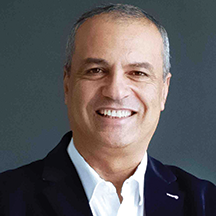Tunisia’s energy transition: the key role of small businesses
Micro, small and medium-sized enterprises (MSMEs) play a critical role in Tunisia’s economy, contributing significantly to GDP and employment. As this column explains, they are also essential for advancing the country’s ambitions to make a successful transition from reliance on fossil fuels to more widespread use of renewable energy sources. A fair distribution of the transition’s benefits across all regions and communities will secure a future where MSMEs thrive as leaders in a prosperous, inclusive and sustainable Tunisia.
Education and health in Tunisia: is human capital at risk?
Tunisia has made significant strides in enhancing the skills, knowledge and health of its population, all cornerstones of economic growth and social progress. This column examines the state of the country’s education and healthcare systems, identifying structural weaknesses that could jeopardise human capital and, by extension, progress towards achieving the sustainable development goals.
Climate change: a growing threat to sustainable development in Tunisia
Tunisia’s vulnerability to extreme weather events is intensifying, placing immense pressure on vital sectors such as agriculture, energy and water resources, exacerbating inequalities and hindering social progress. This column explores the economic impacts of climate change on the country, its implications for achieving the sustainable development goals, and the urgent need for adaptive strategies and policy interventions.
New horizons for economic transformation in the GCC countries
The countries of the Gulf Cooperation Council (GCC) have historically relied on hydrocarbons for economic growth. As this column explains ahead of a high-level ERF policy seminar in Dubai, emerging technologies like artificial intelligence, blockchain and robotics – what some call the fourth industrial revolution – present a unique opportunity for the region to reduce its dependence on oil and make the transition to a knowledge-based economy.
Tourism in MENA after Covid-19: from shock to structural transformation
Covid-19 is likely to result in profound changes to the attitudes, concerns and travel preferences of tourists. This column argues that for countries in the Middle East and North Africa that are heavily dependent on the tourism sector, addressing the concerns of consumers and trying to offer customised services will be key to recovery.
The impact of Covid-19 on the tourism sector in MENA
Following the big fall in international tourist arrivals in the Middle East and North Africa early in the pandemic, some countries restarted activities during the summer with an emphasis on health and hygiene measures. But as this column explains, a second wave of Covid-19 could paralyse the sector and lead to bankruptcy for many businesses.


